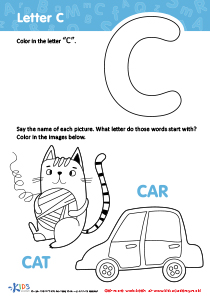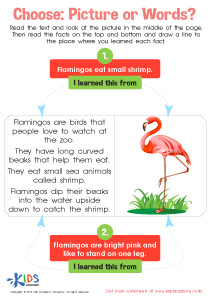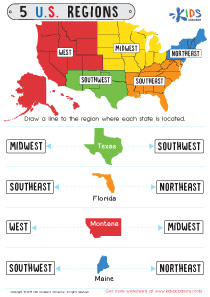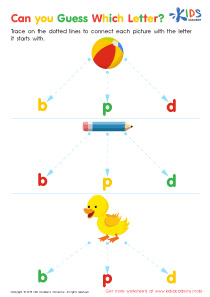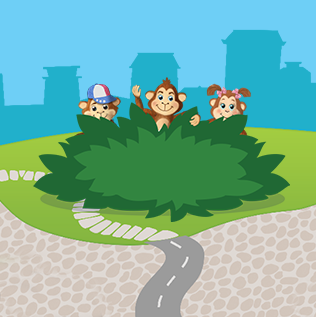English Language Arts Lessons | Common Vocabulary for Ages 3-4
5 results
Dive into our engaging series of lessons on Common Vocabulary for Ages 3-4, designed to spark the joy of learning in every child! Tailored specifically for young learners, our program combines interactive worksheets, captivating educational videos, and fun-filled assessment quizzes to ensure a comprehensive understanding of essential vocabulary. Every lesson is crafted to enhance language development, encourage curiosity, and build a strong foundation for future academic success. Join us on this exciting educational journey and watch your child's communication skills blossom with our Common Vocabulary lessons for Ages 3-4. Start their adventure in learning today!
In the foundational years of a child's education, the importance of building a strong vocabulary cannot be overstated. Our lessons on Common Vocabulary for Ages 3-4 are meticulously designed to cater to the needs of young learners, providing them with an engaging and effective platform to enhance their linguistic capabilities. Understanding and using common vocabulary at such a tender age not only boosts their communication skills but also significantly contributes to their overall cognitive development and academic success in the years to come.
The essence of our Common Vocabulary for Ages 3-4 lessons lies in their interactive and immersive approach. Through a combination of interactive worksheets, educational videos, and assessment quizzes, children are introduced to new words in a fun and engaging manner. This multi-modal approach ensures that children are not only able to recognize words but can also comprehend their meanings and context, thereby enabling them to use these words confidently in their daily conversations and academic tasks.
Interactive worksheets form the core of our lessons. These are not just any worksheets; they are designed to captivate the young minds with colorful and appealing illustrations that relate directly to the words being taught. Each worksheet is structured in a way that encourages children to actively participate in the learning process, through activities such as matching words to pictures, tracing, and filling in missing letters. This hands-on approach ensures that children are not passively absorbing information but are actively engaged in their learning journey, which significantly enhances retention and understanding.
In addition to worksheets, our educational videos play a pivotal role in reinforcing the common vocabulary introduced. These videos are crafted with young viewers in mind, featuring catchy tunes, vibrant animations, and relatable scenarios that help embed new words into children's long-term memory. The visual and auditory stimuli provided by these videos cater to diverse learning styles, ensuring that every child has the opportunity to grasp the vocabulary effectively.
Moreover, assessment quizzes are incorporated as an essential component of our lessons on Common Vocabulary for Ages 3-4. These quizzes are carefully designed to be age-appropriate and enjoyable, aiming to evaluate the child’s understanding and retention of the words learned. Through these quizzes, parents and educators can gauge the progress of their young learners, identify areas of improvement, and provide additional support where necessary.
The significance of our Common Vocabulary for Ages 3-4 lessons extends beyond just learning new words. These lessons lay the groundwork for reading comprehension, effective communication, and academic achievement. By building a strong vocabulary early on, children are better prepared to tackle more complex linguistic and cognitive tasks as they advance in their educational journey. Moreover, the confidence gained from mastering language skills at such a young age can have a profound impact on their overall self-esteem and motivation to learn.
In conclusion, our Common Vocabulary for Ages 3-4 lessons offer a comprehensive, engaging, and effective approach to vocabulary building for young children. By leveraging interactive worksheets, educational videos, and assessment quizzes, we not only enrich children’s vocabulary but also ignite their love for learning, setting them on a path to academic success and lifelong learning.
